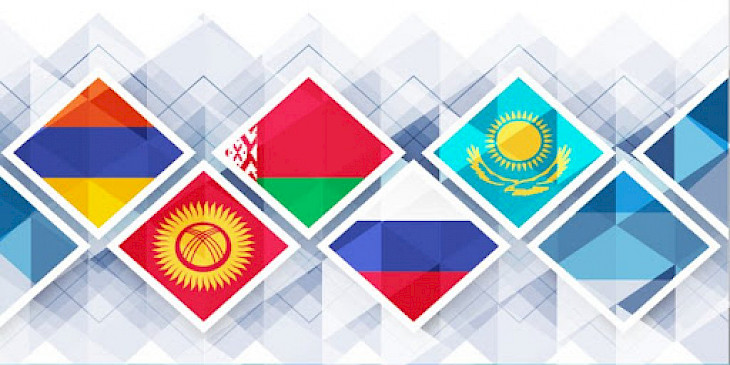ID :
558682
Mon, 03/02/2020 - 07:51
Auther :
Shortlink :
https://www.oananews.org//node/558682
The shortlink copeid
EEC prepares report on EAEU development for 2017-2018

Bishkek, Mar.2, 2020 /Kabar/. In 2017-2018, member-states of the Eurasian Economic Union (EAEU) have managed to significantly improve the sustainability of economic development.
This conclusion was reached by the Macroeconomic Policy Department of the Eurasian Economic Commission (EEC) in the report on the implementation of the Main Directions for EAEU Economic Development for 2017-2018, the press service of the EEC reported.
At the same time, the main drivers of economic growth were the cost of final consumption and gross savings in Armenia, Belarus, Kazakhstan and Kyrgyzstan, as well as an increase in net exports against the background of favorable price conditions in Russia and Kazakhstan.
Fragmented growth has been observed in selected industries and services.
The report stresses in 2017-2018, the position of the EAEU countries in the international ratings continued to strengthen, but this did not affect the increase in inflows of foreign direct investment (FDI).
FDI inflows to the Union reached its lowest level since 2010, having fallen five times since 2016. Investment activity of the real sector of the economy was constrained by the restrictive monetary policy of the central (national) banks of the EAEU countries and, as a consequence, low level of monetization of the national economies (2-4 times lower than in developed countries).
According to the estimates of the Macroeconomic Policy Department, the level of under-utilization of the EAEU integration opportunities and potential has increased in comparison with 2015-2016.
Current economic growth rates do not provide for an increase in the share of the EAEU in the world GDP, and limited involvement in world trade does not allow reaching a sustainable export growth trajectory. The science intensity of the Union’s GDP in 2018 remained two times lower than the world average and three to four times behind the leading countries (Korea, the United States and Japan).
Reserves for economic growth in the Eurasian Economic Union remain in machine-building, light and food industries. Restarting production capacities by improving the availability of loans to replenish working capital can significantly accelerate economic growth in the Union’s countries.
The Eurasian Economic Commission (EEC) is the executive body of the Eurasian Economic Union (EAEU) responsible for implementing decisions, upholding the EAEU treaties and managing the day-to-day business of the Eurasian Economic Union.
The main task of the EEC is to ensure the functioning and development of the EAEU, and to prepare proposals for its further integration.





